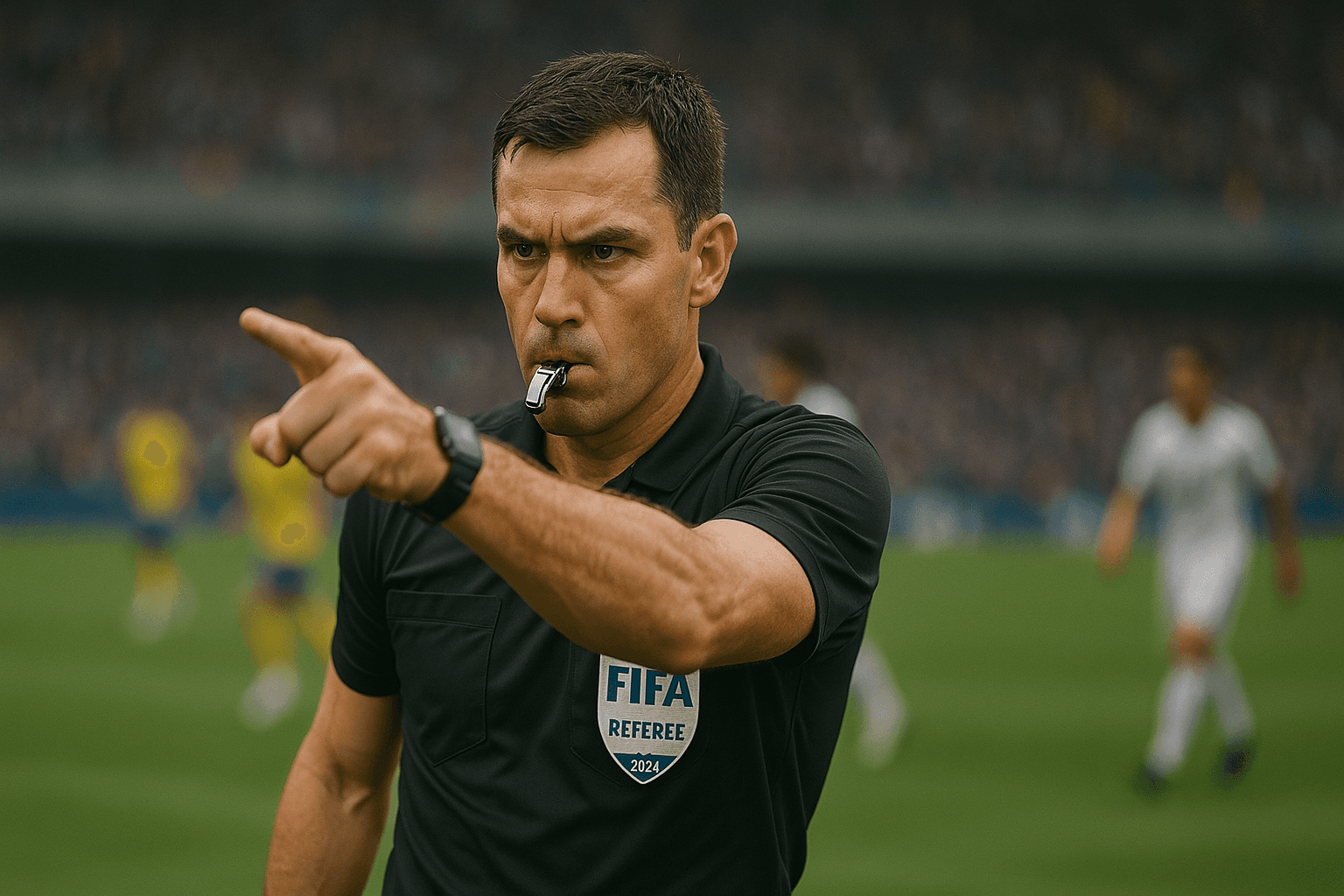Referee is one of the most demanding roles on the pitch. In a split second, a decision must be made that will affect the further course of the match. Player pressure, crowd reactions, and the fast pace of the game make maintaining peak concentration crucial. Every activity—not just on the field—requires managing one's attention. This is important because attention is the primary tool that determines whether the referee will make use of their other skills and resources.
Concentration is the appropriate selection of information coming from the external environment (events on the pitch) and from the body (e.g., thoughts). It is best to allow into consciousness only information that supports and motivates activity.
In this article, I'll look at the mechanisms of concentration in sports and present practical methods that referees can use to improve their ability to make quick and accurate decisions.
To begin with, I'll examine specific objects of concentration for referees that are worth focusing on, and I'll also identify a base of irrelevant elements that are best ignored.
| Key elements of concentration | Irrelevant elements of concentration |
|---|---|
| Before the match: focusing on a successful performance, analyzing team strategies, and preparing for various scenarios | Before the match: catastrophizing, excessive worrying |
| During the match: specific tasks defined before the game, present-moment thinking | During the match: negative thoughts, players who hinder your work |
| After the match: analyzing what went well and what could be improved (self-assessment) | After the match: dwelling on mistakes |
It's worth experimenting for yourself to determine which elements are helpful and which hinder performance. This can be tested not only in sports settings. Everyday life also offers many answers.
Techniques for Improving Concentration
Concentration Grid
The first technique relates to actively engaging in the match from the first whistle. The concentration grid can help you do this—an exercise that anyone can perform with a phone and internet access. Simply type "concentration grid" into any search engine. You'll find an exercise involving number and digit selection, along with instructions.
Doing this exercise even once, a few minutes before the first whistle, can help you begin the match with a higher level of focus.
Remember! Like everything in psychology, this is a process that requires time and commitment.
Imagery Training
The second element is imagery training, which can help you during the match itself. It consists of many components that are worth implementing so that your information selection remains at an optimal level.
Listen to the podcast series I created in collaboration with the Sport Psychology Zone:
👉 Imagery Training – Spotify
Summary
Concentration is a skill that can be developed—the key is to continually train attention and be aware that concentration is a sine wave; it will never be at its peak due to the massive number of stimuli from the environment.
However, regularly practicing mental techniques will allow you to make faster and better decisions, even under pressure. The more we focus on the right aspects of the game, the greater our confidence and control over the situation on the pitch.
In the next article, I'll address the topic "The Referee and His Mind After Making a Mistake on the Pitch."
Follow publications on the website and visit the Psychologist on the Pitch profile on Facebook and Instagram so you don't miss future tips!
References
- KO-Mental Marcin Kochanowski (2020). Concentration Grid.
https://siatkakoncentracji.pl/ - Więcław, G. (2017). Ile sił w głowie. Psychologiczny niezbędnik biegacza. Athlete Publishing.
- Sport Psychology Zone (2024). Imagery Training – Introduction.
https://open.spotify.com/show/5Dkih9wfeNBTL77X9i557L?si=dd098f97d03c4bbe


